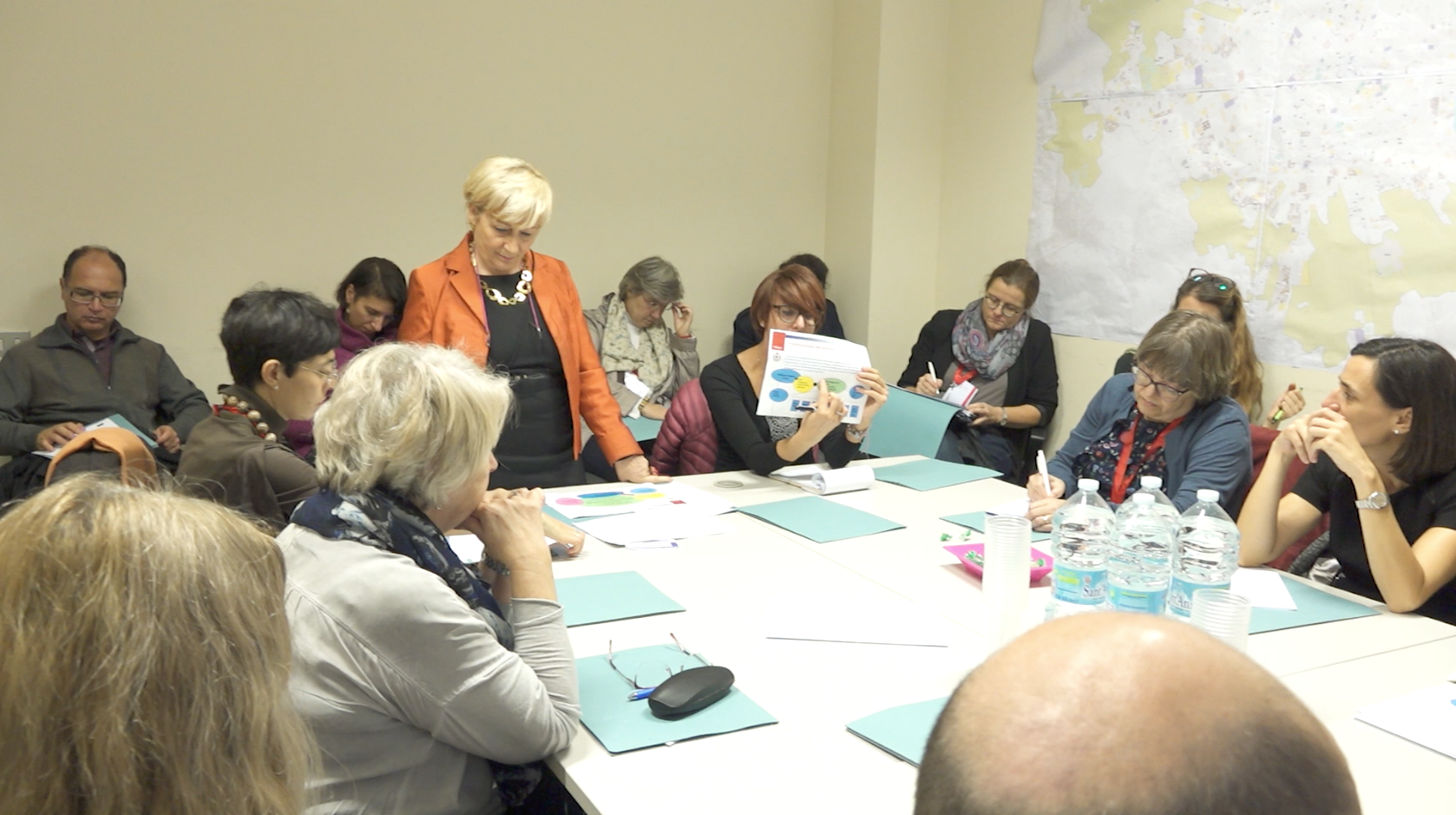EUROCITIES’ members of the Working Group Migration and Integration and representatives from the European Commission and the OECD visited two key pillars of the reception and integration system of the city of Milan.
The field visits were organised on 8 November 2018, back to back with the Integrating Cities Conference VIII – Cities4People: Migrating ideas, inspiring integration and in the framework of the Solidarity Cities Initiative which Milan has joined. The visits aimed to show international participants the characteristics of the models of reception and early and long-term integration exist in Milan. Participants discussed with the city officers in charge of the different services and also talked directly with the migrants and refugees beneficiaries of the services. They provided their inputs and feedbacks during the day as well as on the day after, during a policy learning activity where other cities reflected on the potential transferability of some elements to their local context.
A first visit concerned two different reception centres, to capture the Italian national model of CAS-Centres for Extraordinary Reception (first level of reception of asylum seekers) and SPRAR - Protection System for Asylum Seekers and Refugees (second level of reception for refugees, more focused on inclusion). The first visit to the ‘Casa Chiaravalle’ presented the project ‘Insieme Casa Chiaravalle’ (Together Casa Chiaravalle). This building, confiscated from the mafia in the Lombardy region, was inaugurated in May 2018. The house was converted into a shelter mainly for Italian and foreign women, especially victims of violence, abuse, torture and trafficking. In Casa Chiaravalle women are helped to start a new life. Casa Chiaravalle also hosts a section that works as a reception centre for asylum seekers (CAS), while they are waiting for the outcome of their asylum application.
After this fruitful exchange, the group visited the ‘Casa Monlué’, an old school now managed by a not-for-profit organisation following a public call for tenders issued by the city of Milan. The building has been turned into a centre that hosts refugees within the national Protection System for Asylum Seekers and Refugees (SPRAR) run by the municipality of Milan and funded and coordinated by the Italian Ministry of Interior.
A second visit concerned the Centre for Job orientation and Placement (CELAV) of the city of Milan. The goal of CELAV is to promote the professional and socio-economic integration of people, above all people in need of greater support. There are various specialised teams in CELAV: the philosophy of the centre is to work on the complexity and specificity of the different needs, avoiding standardised interventions. One of the teams focuses on refugees and asylum seekers. CELAV represents a successful model in which the city authorities work together with the private sector: a cooperative dealing with the orientation and support to the users and the companies hiring them. Another peculiarity is the capacity of CELAV to offer a complete set of services: information, orientation, take in charge of the disadvantage person, job placement.
During the visit the team working for migrants and refugees’ labour integration presented the services offered at the centre – like the ‘Bella Milano’- information about its users and the results achieved thus far. Some of the centre’s younger clients even shared their stories with the city representatives. Through ‘Bella Milano’ (Beautiful Milan) asylum seekers living in the reception centres volunteer together with Milanese citizens in taking care of public spaces in the city (cleaning of green spaces, emptying the bins, etc). These vocational activities aim to foster the culture of integration and allow the refugees to experience life outside the centres, practice their Italian language and establish a positive relationship with the neighbourhood they live in.
To end the visits, the members of the Working Group have been invited to meet young refugees and migrants at Fondazione Umanitaria (‘Humanitarian Foundation’). This historical not-for-profit organisation in Milan, partners up with CELAV to implement professional training paths for migrants and refugees.
A video of the visits will be produced by EUROCITIES thanks to the EaSI grant from the European Commission.



